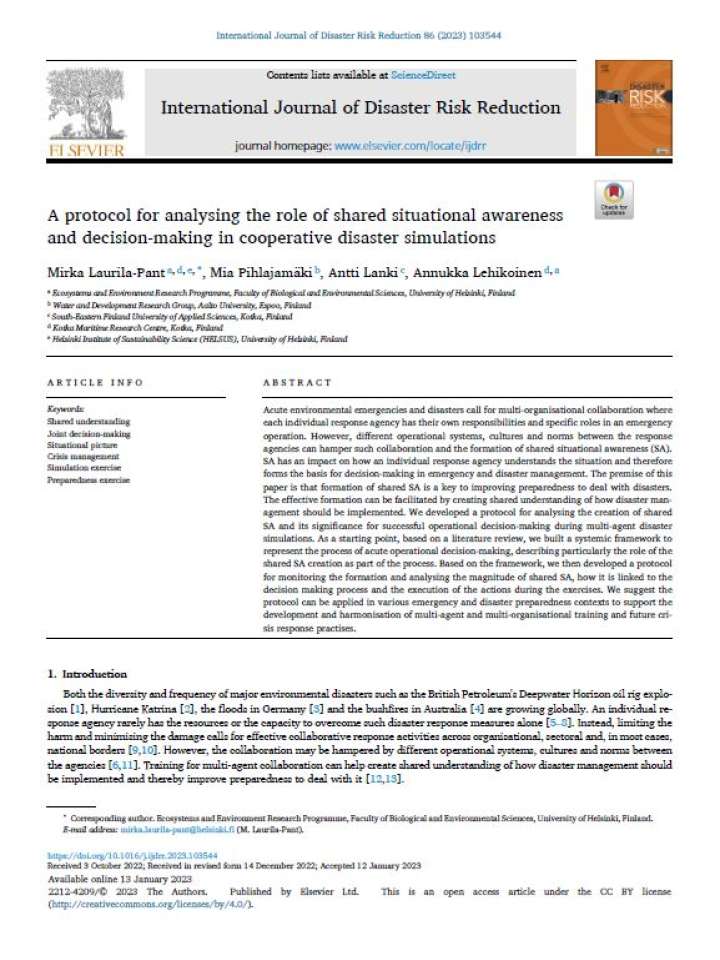A protocol for analysing the role of shared situational awareness and decision-making in cooperative disaster simulations
The premise of this paper is that formation of shared SA (situational awareness) is a key to improving preparedness to deal with disasters. The effective formation can be facilitated by creating shared understanding of how disaster management should be implemented. Acute environmental emergencies and disasters call for multi-organisational collaboration where each individual response agency has their own responsibilities and specific roles in an emergency operation. However, different operational systems, cultures and norms between the response agencies can hamper such collaboration and the formation of shared situational awareness (SA). SA has an impact on how an individual response agency understands the situation and therefore forms the basis for decision-making in emergency and disaster management.
The authors developed a protocol for analysing the creation of shared SA and its significance for successful operational decision-making during multi-agent disaster simulations. As a starting point, based on a literature review, the researchers built a systemic framework to represent the process of acute operational decision-making, describing particularly the role of the shared SA creation as part of the process. Based on the framework, we then developed a protocol for monitoring the formation and analysing the magnitude of shared SA, how it is linked to the decision making process and the execution of the actions during the exercises. We suggest the protocol can be applied in various emergency and disaster preparedness contexts to support the development and harmonisation of multi-agent and multi-organisational training and future crisis response practises.
Explore further

